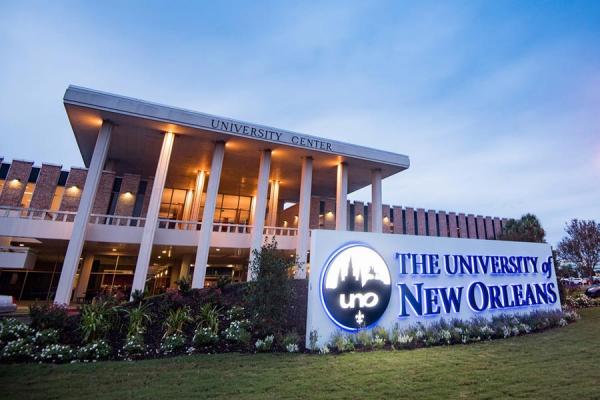Reimagining Education with Sal Khan at the University of New Orleans
Education and technology take center stage this month at the University of New Orleans as online education pioneer and educational reform advocate Salman Khan re-imagines global education through the world of video.
"Reimagining Education: A Town Hall Meeting with Sal Khan," is slated from 5 to 7 p.m. on Monday, May 20, 2013, in the University Center ballroom. The event, which includes a Q and A session and a book signing, is hosted by UNO, Benjamin Franklin High School and Tulane University and is part of Tulane's NewDay Social Entrepreneurship Distinguished Speakers Series.
Nearly 10 years ago, Khan, a Louisiana native and former Silicon Valley hedge-fund executive, received a request for math help from his younger cousins in New Orleans, Khan said in a TED Talk for the Bill and Melinda Gates Foundation. TED (Technology, Entertainment and Design) is an online set of conferences owned by the private non-profit Sapling Foundation that has achieved more than one billion online views under the slogan "ideas worth spreading".
Khan devised a way to tutor his young relatives from Boston using instant messaging and online videos that he posted on YouTube. His younger cousins were so pleased with the results – an opportunity to stop, rewind, review, problem solve with peers and ensure mastery through interactive exercises – that they told Khan they preferred his video instruction to the classroom.
Khan founded the Khan Academy, a series of more than 3,500 educational videos and interactive quizzes offering complete curricula in a wide range of elementary school to college-level topics. In so doing, he launched a revolution in education that is now spawning educational software, has led to more than 175 million views of his videos and has garnered more than $16.5 million in support from the Bill and Melinda Gates Foundation, Google and other high-profile technology backers, including philanthropists and venture capitalists.
Khan has been profiled by Forbes, Fast Company and "60 Minutes," among others. In fall, he was named one of TIME magazine's 100 most influential people in the world.
Khan, who as a high-school student studied upper-level mathematics courses at UNO before heading to the Massachusetts Institute of Technology and Harvard Business School, is author of the best-selling book The One World School House: Education Reimagined. The book calls for free, universal, global education and outlines Khan's views on a variety of topics, including how technology will level the playing field; how it will make classrooms more human and teachers more important; how and why the U.S. can afford to pay educators the same as other professionals; and why we should be optimistic about the future of learning.
"Let's use video to reinvent education," Khan said in his now-famous 2011 Ted Talk, adding that what at first may appear to be a dehumanized teaching strategy is, in fact, quite humanistic.
Video instruction removes the "one-size-fits-all" mentality from the classroom, Khan said. It allows students to engage in self-paced learning, doing problems and watching tutorials over and over again until they have reached the point of mastery.
Khan encouraged teachers to give students video lectures to watch at home and do "homework" in the classroom with opportunities to problem-solve with peers in groups and the teacher available to help.





